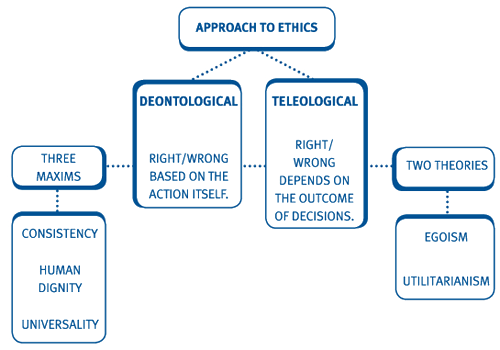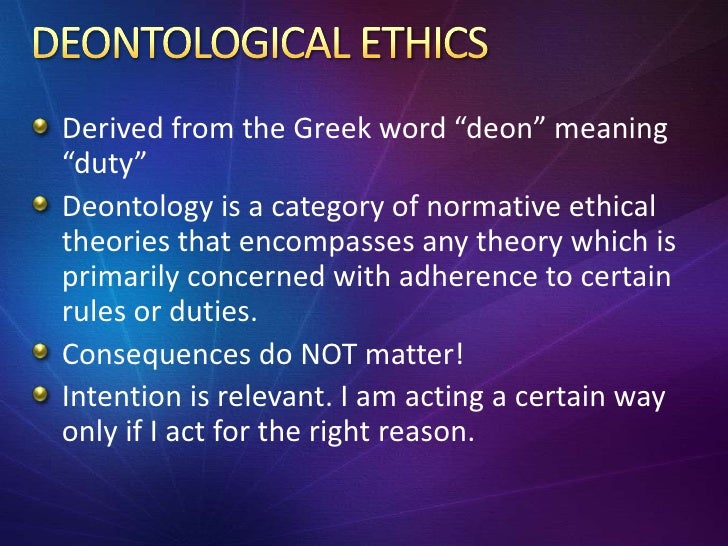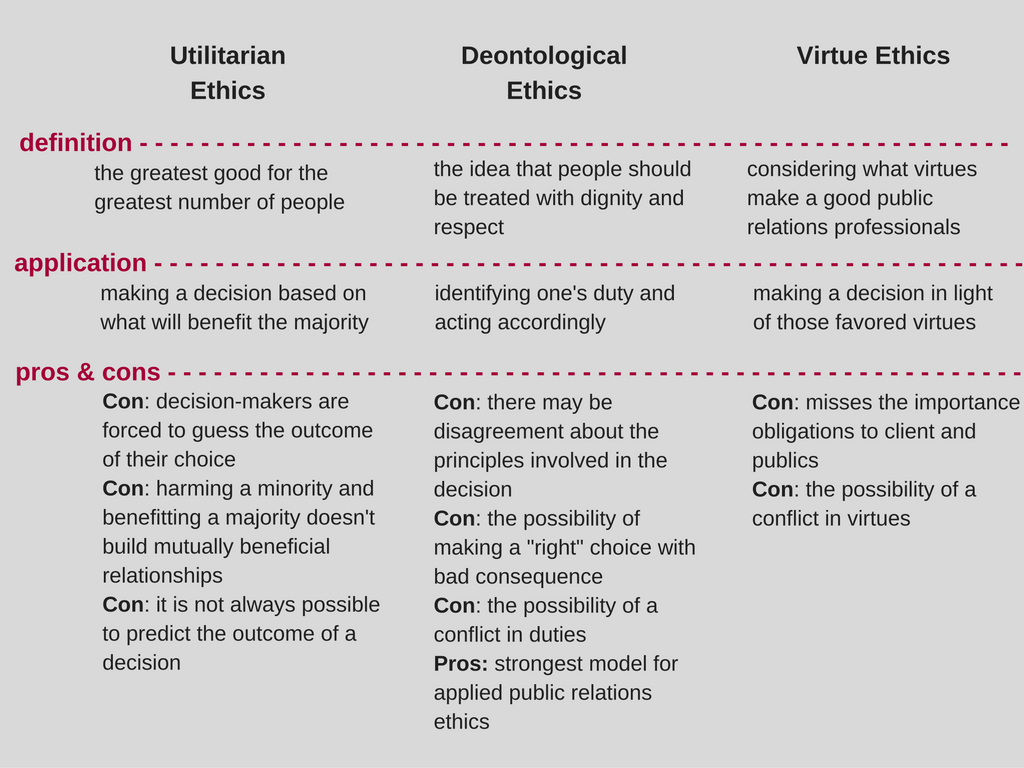Deontological theory of ethics postulates that morality lies in actions that people perform rather than consequences of actions. Rationality of human beings enables them to weigh their actions before doing them.
 Deontology Definition Theory Ethics Examples Video Lesson Transcript Study Com
Deontology Definition Theory Ethics Examples Video Lesson Transcript Study Com
Utilitarianism and deontological ethics.

Deontological ethical theories. Consider first agent centered deontological theories. Deontological ethics is a moral philosophy where the usual ethical definition of right or wrong is based on a series of rules to follow instead of the consequences which occur from such a decision. Early beginning of human civilization the word of the king is the law deontological greek word dein or deon meaning to be obligated or simply duty.
Utilitarianism also called consequentialism is a moral theory developed and refined in the modern world in the writings of jeremy bentham 1748 1832 and john stuart mill 1806 1873. The negative rights theory asserts that an action is right if it protects the individual from harm or unwarranted interference from other people or the government while exercising his right. Deontology or deontological ethics is the branch of ethics in which people define what is morally right or wrong by the actions themselves rather than referring to the consequences of those actions or the character of the person who performs them.
δέον obligation duty λόγος study is the normative ethical theory that the morality of an action should be based on whether that action itself is right or wrong under a series of rules rather than based on the consequences of the action. In moral philosophy deontological ethics or deontology from greek. Deontological ethics in philosophy ethical theories that place special emphasis on the relationship between duty and the morality of human actions.
In deontological ethics an action is considered morally good because of some characteristic of the action itself not because the product of the action is good. Deontological ethics there are two major ethics theories that attempt to specify and justify moral rules and principles. It is sometimes described as duty obligation or rule based ethics.
It is a concept which is based on a person s obligation or duty to treat others with respect. The most traditional mode of taxonomizing deontological theories is to divide them between agent centered versus victim centered or patient centered theories scheffler 1988. The deontological ethical theories hold that the actions are morally right independent of their consequences.
According to immanuel kant goodness is not in consequences of actions but an intrinsic attribute of an action. Types of deontological ethical theories negative and positive rights theories. The deontological ethical theory is the idea that a person s ethical position will judge the morality of a decision or an action.
It is a rules based proposition and can be described as an obligation individuals are bound to certain duties because of the rules but the rules must follow a form of acceptable ethics in order to be followed. Deontological ethical theory 1. Deontological ethical theory chapter 5 2.
 Types Of The Ethical The Ethical Theory Their Advantages And Disadvantages Download Table
Types Of The Ethical The Ethical Theory Their Advantages And Disadvantages Download Table
 In What Ways Are Utilitarianism And Deontological Ethics Compatible Quora
In What Ways Are Utilitarianism And Deontological Ethics Compatible Quora
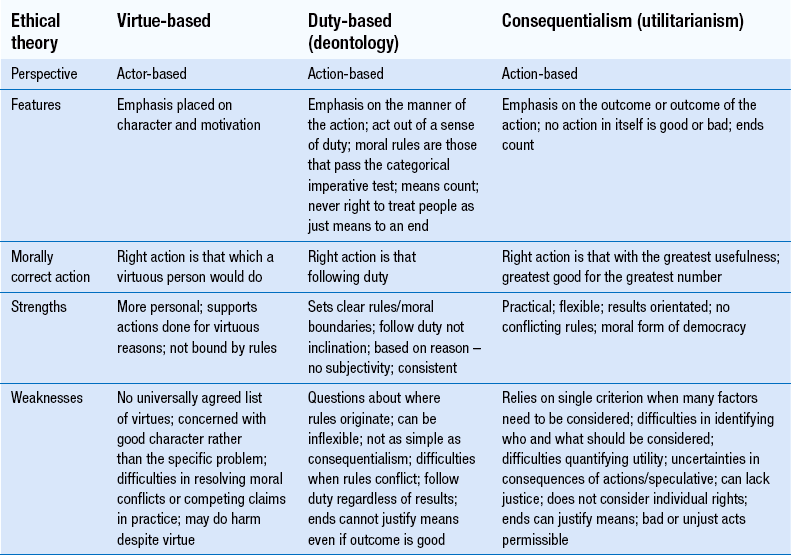 Ethics The Theory Basicmedical Key
Ethics The Theory Basicmedical Key
Deontological Ethics Deontological Theory Asserts That The Rightness Of Actions Is Determined Partly Or Entirely By Their Intrinsic Value Consequentialist Ppt Video Online Download
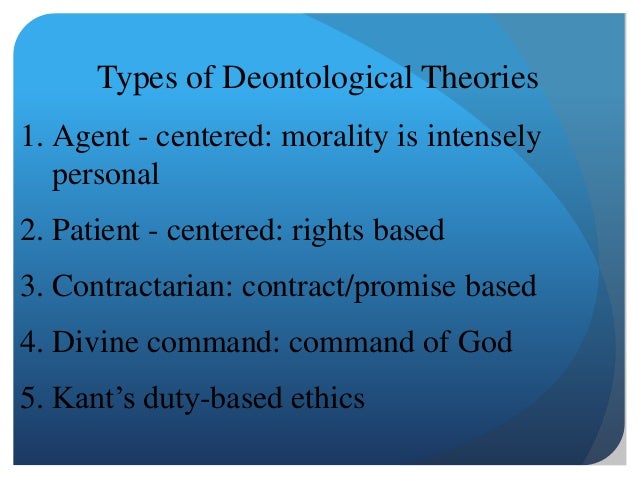 Deontological Ethics Christine Wandolo
Deontological Ethics Christine Wandolo
 Difference Between Teleological And Deontological Compare The Difference Between Similar Terms
Difference Between Teleological And Deontological Compare The Difference Between Similar Terms
 Teleological Vs Deontological Youtube
Teleological Vs Deontological Youtube
 What Is Deontological Ethics What Does Deontological Ethics Mean Deontological Ethics Meaning Youtube
What Is Deontological Ethics What Does Deontological Ethics Mean Deontological Ethics Meaning Youtube
 Deontological Ethics Deontological Ethics Philosophy Theories Philosophy
Deontological Ethics Deontological Ethics Philosophy Theories Philosophy
 Deontological Ethics Kant Ppt Deontological Ethics Ethics Categorical Imperative
Deontological Ethics Kant Ppt Deontological Ethics Ethics Categorical Imperative
